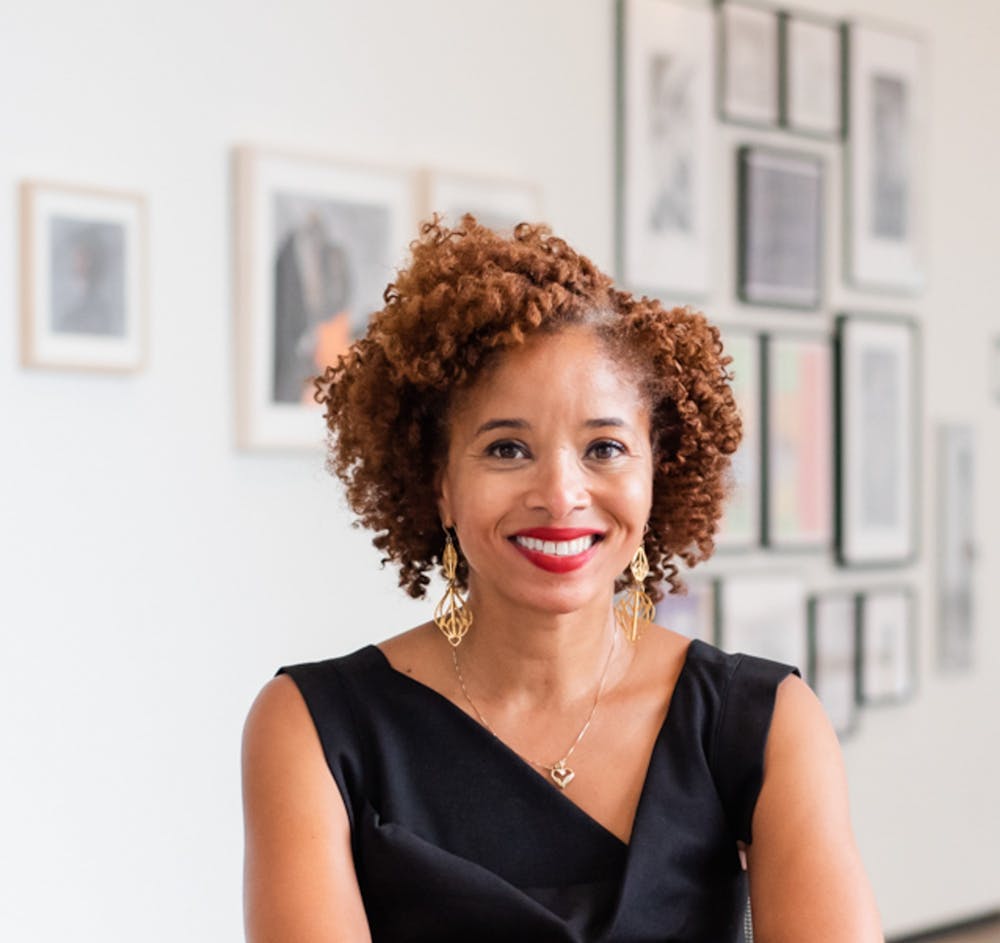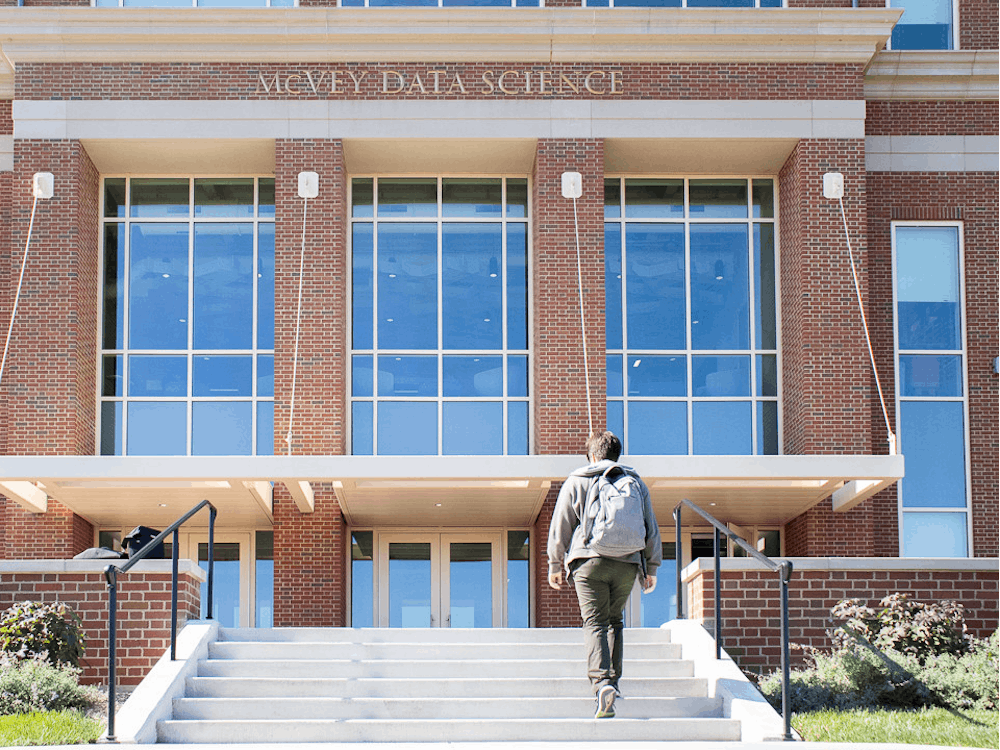Nicole Fleetwood, a professor of media, culture and communication at New York University (NYU), was finishing up teaching for the day when she received an email from Miami University’s president, Gregory Crawford. In his email, Crawford invited Fleetwood back to her alma mater to give the 2023 spring commencement speech.
“I teared up,” Fleetwood said. “I was so emotional, and President Crawford’s email was so moving and beautiful, filled with love and kindness.”
On that same day in September, seven years prior, Fleetwood was at Miami, invited by Anita Mannur, a professor in the English department, to talk with students about her book “Marking Time: Art in the Age of Mass Incarceration,” which investigates the impact of art for incarcerated individuals.
Fleetwood has spent more than a decade researching the relationship between art and mass incarceration. Based on interviews and prison visits, she saw how prisoners took ordinary objects and created art out of it to decorate their cells. She is interested in the impact art has on incarcerated individuals, but it wasn’t originally where she thought her career would go.
Born and raised in Hamilton, Ohio, Fleetwood calls herself a “fourth-generation Black Hamiltonian” and would visit Miami’s campus frequently. She received a substantial scholarship from Miami, but the School of Interdisciplinary Studies, Miami’s old Western College Program, is what convinced her to attend.
During her time in the School of Interdisciplinary Studies, she studied under passionate professors like Christopher Wolfe.
“I remember her vividly as an active member of the community, and a very bright and passionate student, active in all kinds of conversations, formal and informal,” said Wolfe, who now teaches in the psychology department at Miami.
Fleetwood graduated in 1994 with a Bachelor of Philosophy in interdisciplinary studies and went on to teach elementary and middle school in San Francisco through Teach for America. During her time with Teach for America, she began working with youth in marginalized communities to help them with employment skills, educational development and applying to colleges.
In 1998, she graduated from Stanford University with her master's in another interdisciplinary degree, modern thought and literature, and earned her Ph.D. three years later in the same area of study. She then began researching art and mass incarceration, which stemmed from her own family experiences.
“The devastation of mass incarceration really stayed with me, and I would go back every year to Ohio to visit incarcerated relatives, and I would see art in the visiting rooms of prisons, so it really started my curiosity … and from there, the project grew,” Fleetwood said.
In August 2021, Fleetwood returned to academia and began teaching at NYU.
“There’s incredible interest in her classes, and I think students feel incredibly lucky to be able to take classes with her,” said Susan Murray, chair of NYU’s Media, Culture and Communication Department. “She’s so talented in the classroom, a really inspiring thinker, and someone who our students greatly benefit from at every level of their engagement with her.”
Enjoy what you're reading?
Signup for our newsletter
Although she is only going into her second year at NYU, Fleetwood has already made a significant impact in the department. She teaches classes on visual culture and mass incarceration, photography and global media issues and sexuality studies.
“We’ve never had a class on visual culture and mass incarceration, but [Nicole] brings her own perspective to classism in photography and sexuality studies that we haven't had before,” Murray said.
In September 2021, Fleetwood won a MacArthur Fellowship from the John D. and Catherine T. MacArthur Foundation for her research on art and mass incarceration. MacArthur Fellowships are stipends granted to nominees to encourage recipients to pursue their research. Generally, only 20 to 30 Fellows are chosen each year.
“I was actually in a car service … in New York driving on the Hudson River on my way to a reception at NYU for my new job when I got the phone call [that I won],” Fleetwood said. “I started screaming, and the car driver almost got in a car accident.”
While the MacArthur Fellowship is an individual award, Murray said Fleetwood’s accomplishments help the entire department.
“It brings more attention to the kind of work that [the department does] as well, and the kind of work that we really want people to see that’s important about media and visual culture, the role they have in this contemporary moment, and the power they have,” Murray said.
Murray wasn’t the only one excited for Fleetwood. Mannur, who has been friends with Fleetwood for over ten years, also celebrated Fleetwood’s achievements.
Mannur was equally excited when she learned that Fleetwood was returning to Miami’s campus this spring to deliver the commencement speech.
“I think it’s really great,” Mannur said. “I don’t know how many times we’ve actually brought somebody who is both an African American woman, who is from Southwest Ohio, who also came up through a humanities-based curriculum like the Western [Program] and has a strong interest in gender and race.”
Wolfe was also proud of his former student when he found out.
“I thought that she was an excellent choice, and I think she’s someone who really both made the most out of her time at Miami, and also is somebody who is not at all shy about having us take a look at ourselves and see if we can do a lot of things better as a university, as a community,” Wolfe said.
Although Fleetwood is still thinking of what she wants to address in her speech, she said she will highlight that every Miami student has to create a change in the world.
“We are all change agents,” Fleetwood said. “We have to understand our power. It’s overwhelming as there are so many issues and crises in contemporary life, but we are change agents that have the ability to impact our own lives and the lives of other people.”




